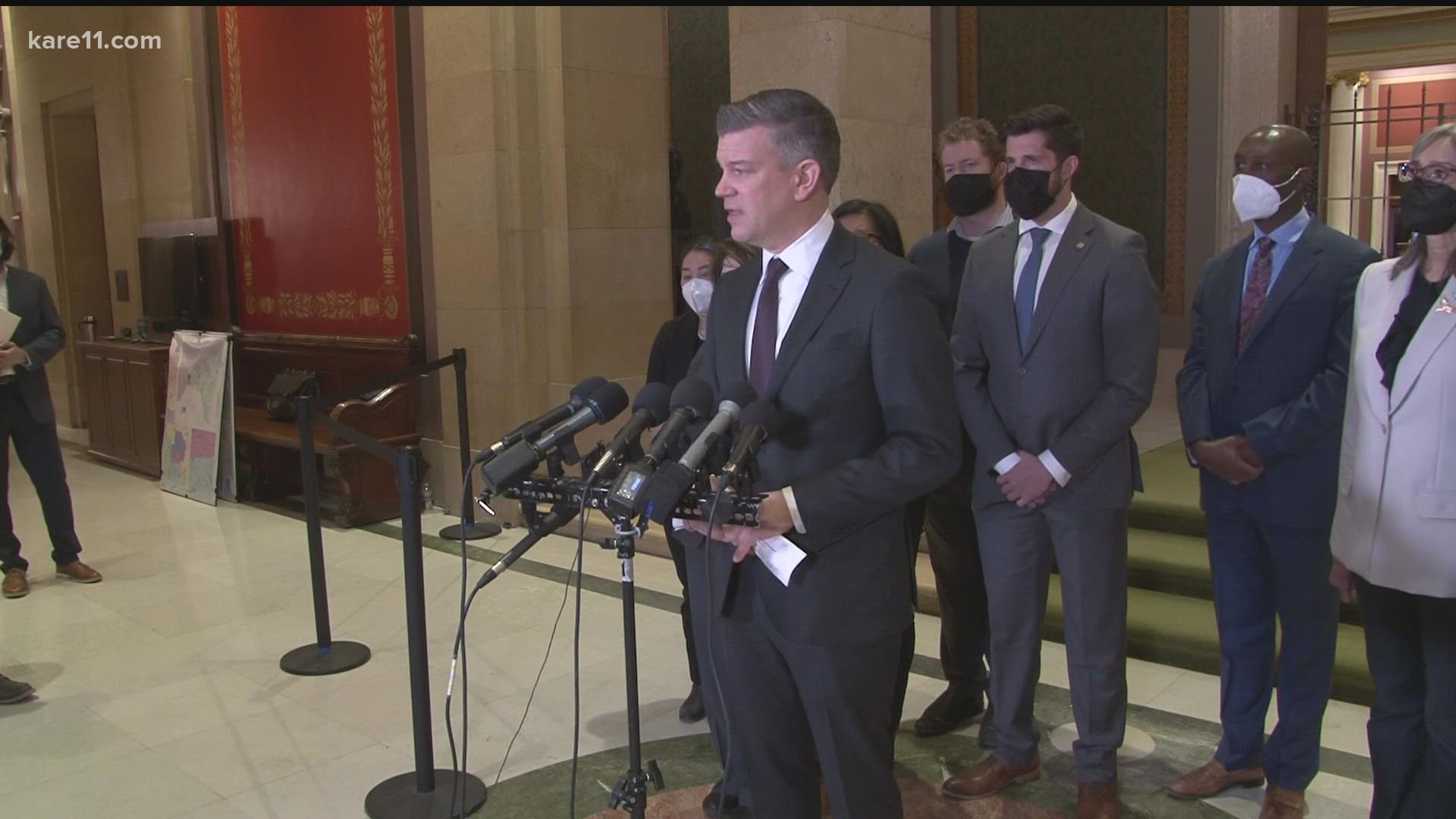ST PAUL, Minn. — Experts agree at the current rate it will take years to fill the police job openings in Minnesota, but lawmakers say they've got to start some place.
DFL legislators Monday introduced a bill that would make it easier for aspiring officers to get on the pathway to a law enforcement career, both for college students and high school grads who might otherwise not be able to afford it.
"We have put together a bill that is built on the premise that Minnesota can recruit, can hire, can train, and can retain the kind of police officers who reflect our community’s values," House Majority Leader Ryan Winkler, a Golden Valley Democrat, told Capitol reporters.
"We do that by creating a pathway into the policing program, expanding and improving the existing program that’s in place."
What's now known as House File 3581 would create an expedited law enforcement training and education program through the Minn. Dept. of Public Safety. It would also set up a scholarship program to help candidates, who'd be selected by a committee created through the DPS.
The main features of the proposal include:
- Free tuition
- Living expenses stipends
- Job placement assistance
- Signing bonuses
- Retention bonuses after 18 months on the job
Those who receive assistance would need to agree to remain with a Minnesota law enforcement agency for at least six years.
According to Deputy DPS Commissioner Booker Hodges, 58 different law enforcement agencies - 25% of all police agencies - currently have unfilled openings for officers. He said there's an average vacancy rate of between 10% and 15%.
"With that vacancy rate, right now, you’re looking at about between 1,200 – 1,500 police officers. Our state on average turns out 536 officers a year. It's going to take three years to fill those jobs, not including five to 10 percent of people who are at or near retirement age."
Hodges, who will soon leave the DPS to become the chief of police in Bloomington, said the high vacancy rate and the legislature's commitment to new pathways to law enforcement careers will help lessen the racial disparities in law enforcement.
"Less than four percent of police are persons of color. This program, if passed, will allow us to have law enforcement agencies that are reflective of the communities they serve."
Rep. Kaohly Vang Her, a St. Paul Democrat, said there are currently people from marginalized communities that face many barriers to choosing a law enforcement career.
"Minnesota has one of the highest standards for education attainment for its officers. That is a good standard. But it is unachievable, when you are a first gen, to go to college, when you are new American who has not had time to build up your savings to go to college, when you are someone who cannot take on the debt to acquire a four-year degree."
The City of Minneapolis faces an especially acute crisis. More than 200 officers went on disability leave and filed Workers Comp claims for Post-Traumatic Stress Disorder following the riots that came in response to the killing of George Floyd in police custody.
Cities have lost officers to other departments offering better pay and benefits. And police chiefs and sheriffs statewide have reported the number of qualified applicants has dropped significantly in the past five years.
"Now is the time to fund education programs and training opportunities for law enforcement in Minnesota’s colleges and universities," Rep. Dan Wolgamott, a St. Cloud Democrat, told reporters.
"Now is the time to ensure our police chiefs and our sheriffs have the highly skilled, highly trained, community connected workforce that they need to do their jobs to keep our communities safe."
Winker said the upfront costs of setting up the program would be $15 million, which is clearly affordable considering the state's projected $7.7 billion budget surplus for the current two-year cycle.
"It's not a question of having the funding," he explained. "The issue is that there are not people interested in doing the work or have left the profession. And we don’t have a training and education pipeline that is producing candidates."
There's a lot of overlap between the Democrats' proposal and one put forward earlier in the session by Senate Republicans. So, that's a promising sign that something will be passed into law before the 2022 Session ends.
Governor Walz has also said he's committed to working on both short-term and long-term solutions regarding the police officer shortage.

